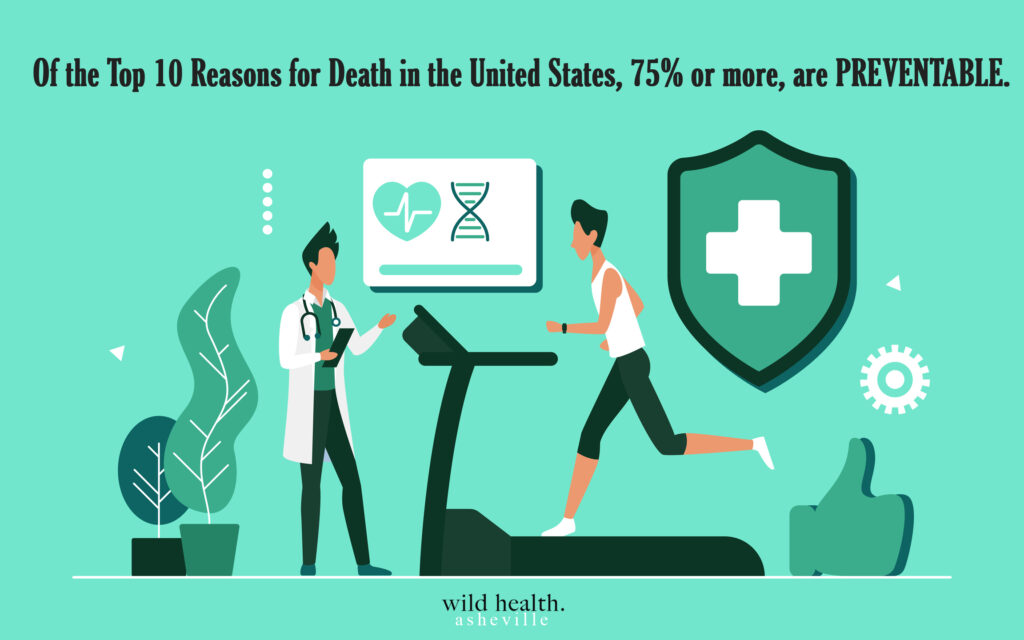As part of my medical school graduation, my class recited the Hippocratic oath, a tradition that most (if not all) medical schools follow during graduation. The most famous line of the Hippocratic oath is “First, Do No Harm.” This command, though has now become almost cliche in the medical world, is the foundation of my passion for primary care and for preventative medicine.

We have a problem in America with ever increasing rates of high blood pressure, diabetes, cancer, and dementia. These diseases are unique to the western world, to the way we have primarily chosen to live, eat, sleep, and move. And the most glaring problem is that our medical system is not set up to properly treat and prevent these conditions. Modern-day medicine focuses on how we can better diagnosis and treat disease with medications or surgical procedures. This is a perfectly acceptable goal when our main enemies are bacterial infections and broken bones — conditions that have an obvious cause and an obvious course of action.
But the diseases that have emerged out of our western way of life are more complex, have multiple root causes, develop over decades, and require a comprehensive approach to treatment.
Mainstream medicine does not provide accurate ways to identify those at risk of developing these conditions nor does it allow the time and space to properly treat them. By the time we reach a diagnosis, harm has already happened; and we are left scrambling to figure out how to reverse it.
This is my passion for precision medicine. By studying your personal genetic tendencies toward disease and taking advanced blood data that can help us identify the early warning signs, we are better equipped at making a personalized plan for you to avoid disease and enjoy as healthy of a life as possible. By having longer appointments and using health coaches, we are better able to provide longitudinal care to help patients create lasting change.

We must look at chronic conditions like heart disease, diabetes, strokes, cancer, and dementia under a new lens. We cannot continue to employ a wait and treat strategy when we know that the cure is far more complex and best done early. In order for me to truly “First, Do No Harm”, I must first be focused on preventing harm and improving lives.
If you’re interested in learning more about precision medicine and how you sign-up, please go to https://authentichealth.com/precision-medicine-primary-care/
Troy Jackson, MD
Authentic Health
www.authenthichealth.com









